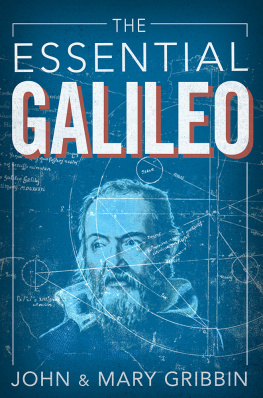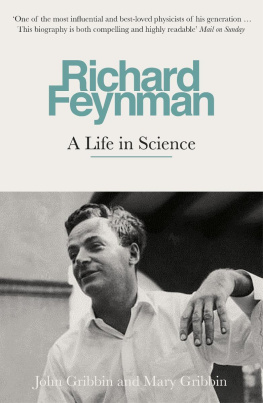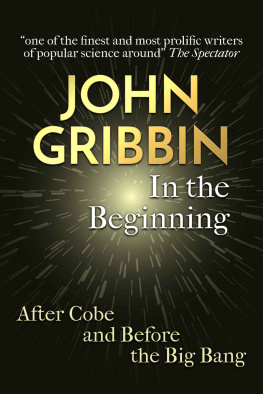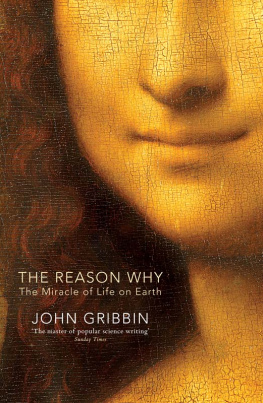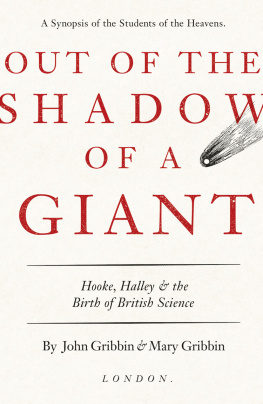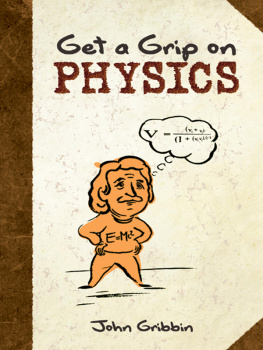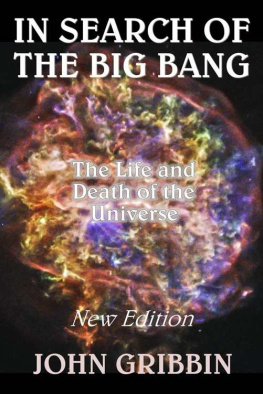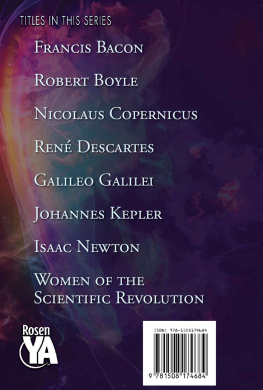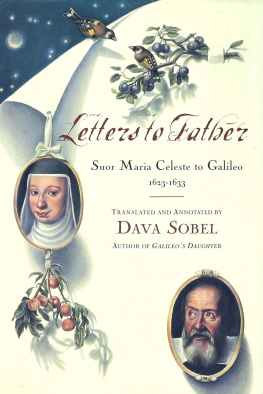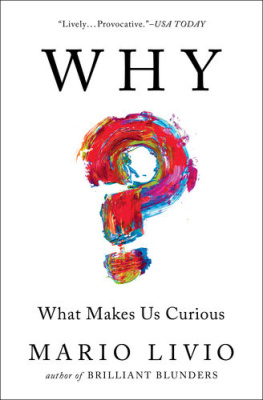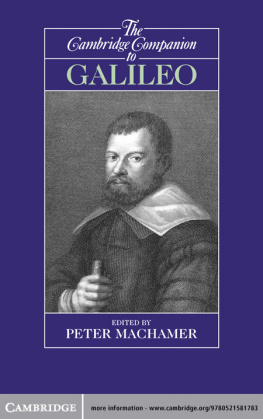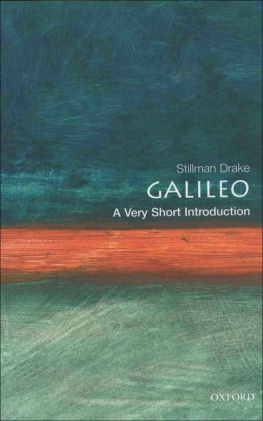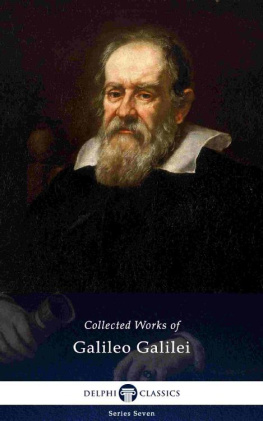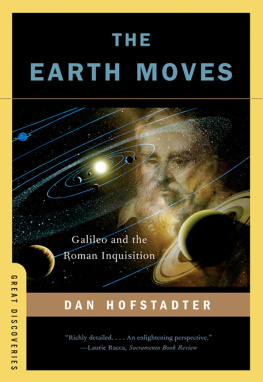THE ESSENTIAL GALILEO
In the same series by the same autbors:
Curie in 90 minutes
Darwin in 90 minutes
Einstein in 90 minutes
Faraday in 90 minutes
Halley in 90 minutes
Mendel in 90 minutes
Newton in 90 minutes
John and Mary Gribbin
The Essential Galileo
Constable London
First published in Great Britain 1997
by Constable & Robinson Ltd.
5556 Russell Square
London WC1B 4HP
www.constablerobinson.com
Copyright John and Mary Gribbin 1997
The right of John and Mary Gribbin to be identified
as authors of this work has been asserted by them
in accordance with the Copyright,
Designs and Patents Act 1988
ISBN 0 09 477110 3
eISBN 978 1 47 211605 5
Set in Liinotype Sabon by
Rowland Phototypesetting Ltd,
Bury St Edmunds, Suffolk
Printed in Great Britain by
St Edmundsbury Press Ltd,
Bury St Edmunds, Suffolk
A CIP catalogue record for this book
is available from the British Library
Cover copyright Constable & Robinson.
Contents
Galileo in context
Galileo Galilei was the founding father of the scientific investigation of the world, and it is appropriate that he should always be known by his given name, Galileo, just as the man who put rock n roll on the map is always known simply as Elvis. In their respective fields, each was the King.
In fact, Galileo owed both his first and his last name to an illustrious ancestor. The family name had been Bonaiuti until the middle of the fifteenth century, when it was changed to Galilei in honour of Galileo Bonaiuti, an eminent physician and magistrate in whose glory his descendants were eager to bask. Our Galileo was born just over a hundred years after his eponymous ancestor died. The great Italian artist Michelangelo died in the same month that Galileo was born; later that year, 1564, William Shakespeare was born at Stratford-upon-Avon. Columbus had discovered America just 72 years previously, and Galileo would be 56 years old when the Mayflower carried the Pilgrim Fathers to New England.
The world was changing in the second half of the sixteenth century, but one aspect of the world had scarcely changed for more than a thousand years. In science, the ultimate authority (indeed, virtually the only authority) was Aristotle, the Greek philosopher who had lived in the fourth century BC. Aristotle (who, among other things, was the tutor of the boy prince who grew up to become Alexander the Great) was an extremely influential figure in Greek philosophy, and later in Roman philosophy, but his pervasive influence in sixteenth century Europe owed much to a chain of accidents.
After the fall of Rome, most of Aristotles works were lost to European civilization. But they survived in Byzantium, Capital of the Eastern Roman Empire, and there the Greek texts were translated first into Syriac, then from Syriac into Arabic. In their Arabic form they were brought to the attention of European scholars via the spread of Islam (which had reached Spain by the eighth century AD), and were translated into Latin in the twelfth and thirteenth centuries. As you can imagine, the Latin versions were very scrambled after all these wanderings, but the interest they aroused led to the rediscovery of the original Greek texts in Byzantium (by then known as Constantinople, and today as Istanbul). New translations were made from Greek directly into Latin then the universal language of European scholars at the instigation of Thomas Aquinas.
All these wanderings were, in a way, appropriate. Aristotle himself used to teach his students while walking about, and as a result his followers (literally) became known as Peripatetics, a name which was still used in Galileos time. Unfortunately, far from being the free-and-easy kind of discipline that such a name conjures up, Aristotelianism was both rigid and wrong.
The really bad thing about Aristotelianism was that it was based on the notion that the truth about the world could be determined by pure thought philosophy without actually carrying out tests (what we would now call experiments) to see if the theories and hypotheses were right. Thus, for example, according to the Peripatetics (but translating into modern units), a heavier object would fall faster than a lighter object. Specifically, an object weighing 100 kilograms would fall 100 metres in the same time it took for an object weighing 1 kilogram to fall 1 metre, both of them starting from rest. The blindingly obvious fact that this could be tested by dropping two objects with different weights at the same time simply did not come into it.
Aristotle believed that the Sun, stars and other heavenly bodies were perfect and unchanging (among other things, this meant they were perfectly spherical), that the Earth was at the centre of the Universe, and that the Sun, Moon, planets and stars were carried round the Earth in perfect circles by crystal-line spheres to which they were attached. None of this seemed crazy in the fourth century BC, but it became set in stone because the Peripatetics simply refused to test their ideas by experimenting, or to take any notice of the results of other peoples experiments. Aristotles picture was modified in detail, principally by Claudius Ptolemy in the second century AD, who introduced the idea of epi-cycles: each planet orbited in a tiny circle, the centre of which orbited the Earth.
When those Greek texts were translated into Latin by the monks working under the orders of Thomas Aquinas, they struck a chord with the Catholic Church. Aristotles idea of geometrical perfection (which had nothing at all to do with religion) harmonized, in the eyes of Thomas Aquinas, with the idea of the perfection of God and of Gods works. So the whole kit and caboodle of Aristotelian cosmology was swallowed up Wholesale by the Church. Henceforth, to question any of this stuff would be to question the perfection of God, and would therefore be heresy.
This was the situation when Galileo came on the scene. Cheaply printed books (and pamphlets) had begun to be available early in the sixteenth century, spreading knowledge outside the traditional centres of the monasteries and the Church-dominated universities. Thinkers such as Nicholas Copernicus and Tycho Brahe had begun to question the received wisdom, from their relatively safe positions in northern Europe not too close to Rome. But in the formal centres of learning, the party line held firm. The role of the professors of natural philosophy (as science was then called) was not to test the Universe to find out how it worked, but to preserve the Aristotelian tradition, and make sure that students learned it in just the same way that the professors had learned it when they had been students.
But Galileo had a head start on the other students. His father, Vincenzio, was an accomplished professional musician (a respected calling then) and keenly interested in mathematics and musical theory. In his Dialogue of Ancient and Modern Music, published just when Galileo went off to university, he wrote:
It appears to me that they who in proof of any assertion rely simply on the weight of authority, without adducing any argument [that is, experimental evidence] in support of it, act very absurdly.
Nothing could be more anti-establishment and anti-Aristotelian. Vincenzio could get away with it in the world of music, though even there his ideas caused a stir. His son, brought up to question authority and find things out for himself, would find it harder to get away with such ideas when it came to discussing the place of the Earth in the Universe.
Life and work
Galileo was born on 15 February 1564 in Pisa, in the Tuscany region of northwest Italy, a centre of the Renaissance. The town, ruled by the Duke of Florence, Cosimo de Medici, was flourishing and prosperous. Cosimo himself would be crowned Duke of Tuscany by the Pope in 1570, as a reward for his military campaigns against the Moors.
Next page
